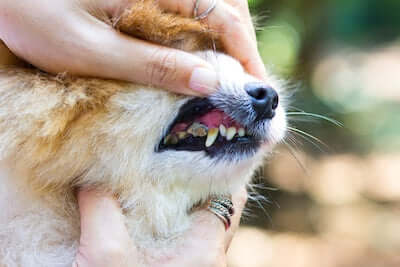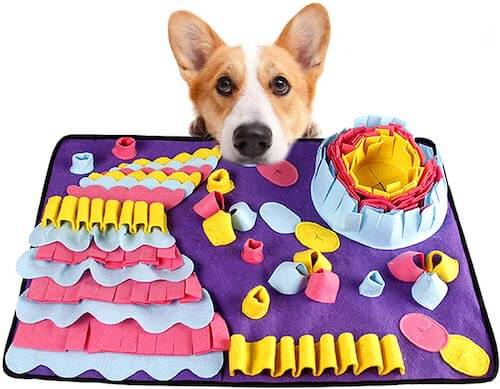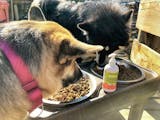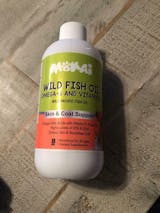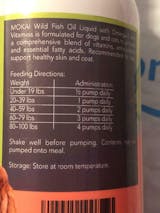As a father of a senior dog, nutrition is key. When I browse the options at the store, I am lost at all the different ingredients and diet plans that are sold. For example, some foods promote joint health for senior pets while others are meant for puppies or middle-aged dogs.
I’ve even had a vendor once told me that the dog food I have been giving my dogs had too much protein since they were not very active. So, I have tried this brand, that brand, and all the brands until I found the one my dogs like. But is my dog nutrition complete? is he getting all his nutritional needs?
Dogs only need meat, right?
It’s a myth that we all believe. But the truth is that dogs, like humans, are omnivores and can meet their nutritional needs by eating a combination of plant and animal foods. It is possible for a dog to live off a properly balanced vegetarian diet, but not to survive from a strict meat diet. An all-meat diet does not meet dogs' nutritional needs.
Dog Nutrition: What does a dog need from his food?
Research suggests that a balanced diet for dogs needs to include water, protein, fats, minerals, and vitamins. Your goal as a dog parent should be to meet these needs with the highest-quality food you can afford. Keep in mind, two brands might advertise 27% protein, but the source of the protein will have an effect on your dog’s digestive system. A higher-quality food assures you that your dog will be able to digest the food more easily.
Selecting Dog Food For A Proper Dog Nutrition
If you are unsure about the ingredients found on the label, select the brand that includes whole-food ingredients.
Your dog’s meal should resemble yours with recognizable and real ingredients.
Also, beware of the calories of your dog’s food. They might seem like they burn 500 calories a minute by the way they jump off of the walls, but they don’t need lots of calories per meal. Most indoor dogs, whether spayed or neutered, do not require a high-calorie diet. 350 calories per cup are ideal for an indoor, sedentary, adult dog. But if you feel that your dog nutrition requires more, ask your veterinarian if a high-calorie diet is right for them.
Which Harmful Ingredients Should You Stay Away From?
As stated above, different brands gather their food ingredients from different sources. A lower-quality brand might say the food contains chicken but could include any part of the chicken including beaks, feet, and other harder-to-digest parts of the chicken. Always make sure the ingredients found on the label are recognizable, and if not, select another brand.
Life-Stage Foods in Dog Nutrition
Life-stage food is dog food that has been formulated to meet a dog’s demanding nutritional needs depending on their age. Puppy food and senior food are examples of life-stage food. For example, puppies grow rapidly and need additional calcium in every meal. Puppy food is designed to meet those needs in order to help your dog grow into a healthy adult. Likewise, senior dogs do not need as many calories as adult dogs or puppies. Therefore, senior food has lower calories but higher protein content in order to provide the right nutritional needs for a senior dog. Senior dogs can also benefit from additional antioxidants like Omega-3 fatty acids to counter inflammation in the joints.
So, Do Dogs Get All Their Nutritional Needs Through Dog Food Only?
Unfortunately, there’s not a right or wrong answer to this question since it depends on the food of your choice. In our detailed dog food comparison, we explained why feeding your dog Pedigree leaves a lot more nutritional gaps in your dog’s diet when compared to high-quality foods such as Orijen.
Not every dog food will provide the complete range of nutrients that your dog needs to thrive and have a healthy life.
That’s why it’s crucial to be aware of your dog’s nutritional needs. If his coat is not shiny, or he’s shedding too much, it might be a good idea to supplement his diet with Omega-3 fatty acids, just like it might be a good idea to add dog vitamins to his daily routine. Mokai has tasty treats packed with the vitamins and minerals that you need to fill your dog’s nutritional gaps.
The best you can do as a pet parent is to select the highest-quality food you can. In addition, make an informed decision on the food of your choice. Ensure your dog is eating rich, nutritional, whole foods. If your dog is a puppy, a senior, or very active, don’t be afraid to select the brands that target those needs, their formulas have been created to meet a dog’s demanding lifestyle. And most importantly, always keep an eye on your dog’s health by noticing any physical changes including those in energy levels.




